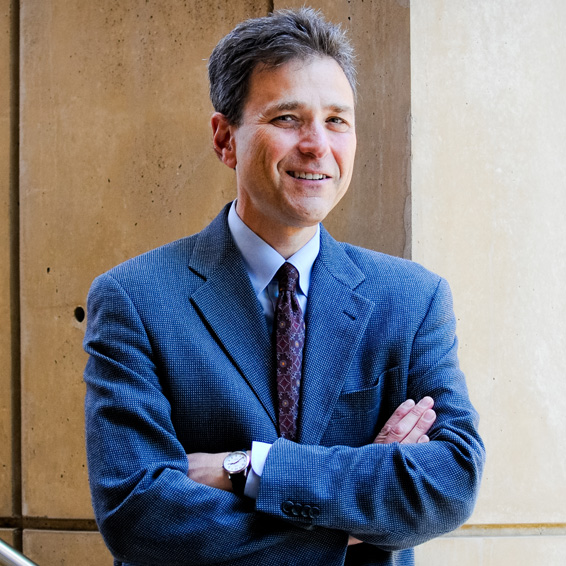Stanford Law’s David Sklansky on Mueller Indictment of Roger Stone
Early on January 25, former Trump campaign advisor Roger Stone was arrested by the F.B.I. on several charges related to Special Counsel Robert Mueller’s investigation into ties between Russia and President Trump’s 2016 campaign. In the discussion that follows, Professor David Sklansky, a former federal prosecutor, explains the charges and the ongoing investigation.
What are the special counsel’s charges against Roger Stone?
Stone has been indicted on seven counts: four counts of lying to Congress, one count of witness tampering, and one count of obstruction of governmental proceedings. All seven counts have to do with efforts Stone is alleged to have made to stonewall congressional investigations of the release by WikiLeaks of emails stolen by Russian hackers from the Democratic National Committee and Hillary Clinton during the 2016 presidential campaign. The indictment charges that Stone lied to Congress about his contacts through intermediaries with the head of WikiLeaks, Julian Assange; that Stone falsely denied having records of those communications; and that Stone pressured another witness to testify falsely about those matters, or not to testify at all.
How serious are these charges? Do they have anything to do with alleged collusion between the Trump campaign and Russia?
They’re serious charges; if convicted, Stone could be sentenced to years of imprisonment. We’re talking about obstructing congressional investigations by lying and pressuring other people to lie. And, yes, they are related to the central focus of Mueller’s investigation: ties between Russia and the Trump’s 2016 presidential campaign. WikiLeaks got the stolen emails from Russian hackers. So if the Russians were coordinating with WikiLeaks, and WikiLeaks was coordinating with the Trump campaign, that puts the Trump campaign into at least indirect coordination with the Russians.

Alan Dershowitz, former Harvard Law professor and frequent commentator on the investigation, claims that very few of the crimes uncovered by Mueller were committed before the appointment of the special counsel, and so are crimes that were generated by the investigation. Is he right, and is it an important legal point?
First of all, Dershowitz doesn’t know what crimes Mueller has uncovered. Like the rest of us, he just knows what charges Mueller has brought so far. This is an ongoing investigation, and there’s no reason to think the charges that have been brought to date represent everything that Mueller and his team have uncovered.
Second, obstruction of justice and perjury are serious crimes, and they are part of what Mueller was asked to investigate. And the charges against Stone don’t have to do with efforts to impede Mueller’s investigation: Stone is charged with lying to Congress and trying to obstruct congressional proceedings.
Third and finally, it’s just not true that the charges Mueller has brought relate only to efforts to cover up what took place in 2016. He’s indicted 25 Russians and three Russian companies for illegally hacking Democratic emails in 2016 and other illegal efforts to tamper with the 2016 election. He also charged and obtained a guilty plea from a California website operator for facilitating Russian tampering with the 2016 campaign.
This indictment has been called a speaking indictment. What does that mean?
It just means that the indictment goes beyond a bare recitation of the legal charges. It also describes the factual background of the charges: the fact that Mueller’s team has convinced a grand jury that it could prove if the case winds up going to trial. It’s relatively common to have speaking indictments in cases with complicated facts. If the case goes the trial, the indictment can then serve as a road map for the judge and the jury to help them understand how the prosecutors believe the evidence fits together. And speaking indictments have been particularly important in Mueller’s investigation, because for the most part it’s been the only manner in which Mueller has communicated any of what his investigation has uncovered.
What is the legal significance of this latest indictment of Roger Stone for the Mueller investigation? And what are the likely next steps for Mueller?
The indictment suggests this investigation isn’t yet wrapping up. One of the allegations in the “speaking” part of the indictment is that “a senior Trump campaign official was directed to contact Stone” about any additional, damaging information WikiLeaks had about the Clinton campaign and hadn’t yet released. Mueller’s team is likely to continue to investigate the ties between the Trump campaign and WikiLeaks, as well as other connections between the Trump campaign and Russia—and efforts cover up those ties and connections.
David Alan Sklansky is the Stanley Morrison Professor of Law and Faculty Co-Directory of the Stanford Criminal Justice Center. He is the author of Democracy and the Police (Stanford University Press 2008), and he writes regularly about criminal procedure and law enforcement.
